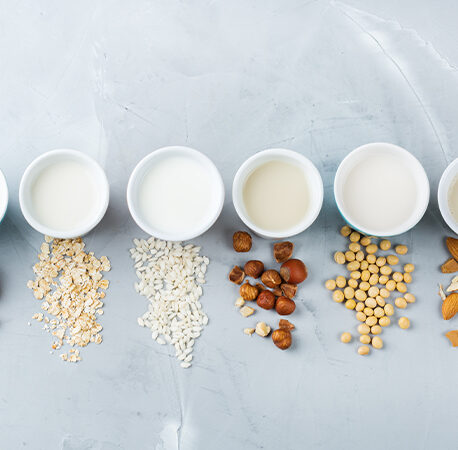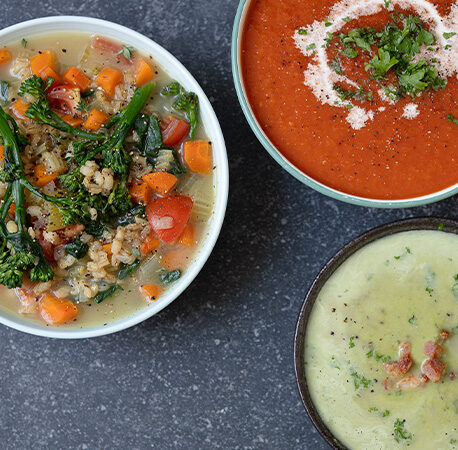It’s easy to focus on fresh, seasonal eating during the summer months when fruit and vegetables are abundant, but we know from experience that it’s harder to motivate oneself during the winter. On cold, dark evenings, it can be tempting to sink into a comfortable routine of meat and quick-fix carbs – but with the elements at their most fierce, our immune systems need an extra boost now more than ever.
What’s in season in the winter?
Fruits
- Pear
- Clementines
- Plums
- Dates
- Grapefruit
- Kiwi
- Orange
- Pomegranate
- Passion fruit
- Papaya
- Lemon
- Cranberries
- Apples
Vegetables
- Beetroot
- Broccoli
- Brussels sprouts
- Cabbage
- Carrots
- Cauliflower
- Celeriac
- Kale
- Leeks
- Mushrooms
- Parsnips
- Squash
- Swedes
- Sweet potatoes
- Turnips
Other tips and tricks
- Ditch the juice detox. While there are plenty of health benefits to adding whole-fruit and vegetable juices to your diet, using juices to replace meals is not a good idea. Any weight loss is likely to be temporary and will be undone as soon as you re-introduce solid food. In the meantime, you will be missing out on plenty of vital nutrients.
- While many people begin the New Year by resolving to be healthier or to lose weight, it’s important to remember that we are still animals and it is natural for our bodies to need extra insulation during the winter. Don’t go hungry; instead, ensure that you are eating enough healthy food to stay satiated. This will help you to resist reaching for that chocolate bar.
- Focus on warming comfort foods. Soup is an amazing and easily achievable way to get loads of vegetables into your diet (and your child’s). Likewise, vegetable gratins and mashes make fantastic, healthy comfort food.
- As the days get shorter, we get less exposure to the sun. This can lead to a drop in Vitamin D and serotonin, causing depression and associated food cravings. Spend time outdoors when possible, and consider taking Vitamin D supplements during these colder months.
- You can also boost serotonin levels with healthy carbohydrates such as root vegetables and whole grains, which will help keep unhealthy cravings at bay.
- Boiling vegetables can mean that some of their nutrients are leached out into the cooking water. Unless you’re using the water (e.g. when making soup or stew), try roasting your veg instead to maximise their goodness; luckily, practically all vegetables taste better when roasted!
- Spices add depth and warmth to food without adding extra calories or fat. Think of how spicy foods heat you up from the inside out! Cumin, cinnamon, turmeric, chilli powder, paprika, nutmeg, ginger and harissa will keep you feeling toasty even on the bleakest winters day. Spicy foods offer health benefits, too, helping to clear out your sinuses or alleviate a stuffed-up nose.






You have to be signed in to comment this post.